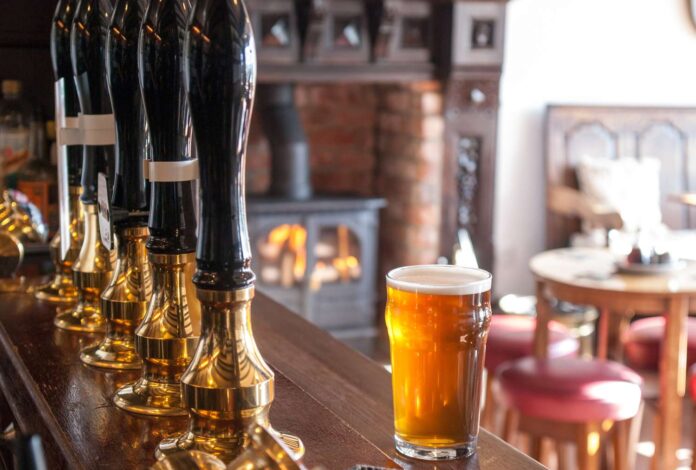:max_bytes(150000):strip_icc():format(jpeg)/Its-Illegal-to-Get-Drunk-in-an-English-Pub-FT-BLOG0524-02-a832d09232e445068c7becad57d27dfa.jpg)
In the early 19th century, an idea spread from the United States to certain parts of Europe: Give up the booze.
Of course, this is a simplistic take on the temperance movement, but the idea of entirely abstaining from alcohol is said to have started in Saratoga, New York, in the early 1800s before expanding to different parts of the U.S. It eventually reached Ireland in 1829 and subsequently England soon after.
In the U.S., this movement eventually led to what was referred to as the “noble experiment,” or Prohibition. Though England never enacted a complete ban on alcohol they instead implemented various laws in an effort to curtail drinking. One such law was The Licensing Act 1872, which made it illegal to get drunk in an English pub. And yes, that law still stands today.
Leading up to the Licensing Act
The Licensing Act 1872 and the temperance movement certainly were not the first attempts to tamp down on alcohol consumption in England.
“Alcohol is a perennial problem for the British state,” says James Kneale, associate professor in geography at University College London and a historical geographer. One of his main interests is drink and the temperance movement in Britain during the 19th and early 20th centuries. “It’s so ubiquitous, so profitable in terms of taxes, but it also causes public health issues,” he says. “There have been many periods of concern [surrounding alcohol] going back to the 13th century, at least.”
“Every person found drunk in any highway or other public place, whether a building or not, or on any licensed premises, shall be liable to a penalty.” — Licensing Act 1872
The 1800s were a particularly pivotal time in England. The Industrial Revolution brought about great change but also left many people living in poverty. According to Kneale, there’s an argument to be made that “quickly growing cities with few amenities and poor housing encouraged pub going and drinking.”
As a response, the Licensing Act 1828 was passed. It not only outlawed being drunk in public but also made it so that pub owners could lose their license for overserving patrons, according to Kneale.
Then came the Beer Act of 1830, which completely changed the way brewing and pub licensing had been established since the 16th century. Under this new law, virtually anyone could obtain a permit to brew and sell beer from their premises, taxes on strong beer and cider were cut, and a strict closing time of 10 p.m. was imposed on all drinking establishments. Nevertheless, 24,000 of these independent brewpubs popped up within the first six months of the act taking effect.
This might seem like an odd move for a society eager to hamper its alcohol consumption. But England had bigger problems in the past with spirits, particularly gin. From 1715–50, the country experienced what’s now called “the gin craze,” during which cheap, widely available gin coupled with horrid living conditions for the country’s poor and working class led to widespread alcoholism. More Londoners died during this period than were born.
Elle Photography / Serena Pirredda / Getty Images
The idea behind the Beer Act of 1830 was to encourage patrons to drink beer as it was seen as a “safer alternative to spirits like gin,” says Kneale. However, and perhaps unsurprisingly, this only resulted in more drunkenness and crime. In response, those pushing for temperance went even harder, according to James Nicholls’ The Politics of Alcohol: A History of the Drink Question in England.
Various like-minded groups got together to enact change and eventually formed the U.K. Alliance for the Suppression of the Liquor Traffic in the 1850s. They pushed for all types of drinking reform including allowing municipalities to vote to limit or completely ban pubs or similar establishments. According to Kneale, these efforts were unsuccessful.
The 1872 Act, according to Kneale, was a watered-down version of what the U.K. Alliance initially wanted. It outlined several rules including strict pub operating hours, required bar owners to display their names on their businesses (leading to a surge of Irish bars with surnames), and yes, outlawed drunkenness, even in pubs.
“Every person found drunk in any highway or other public place, whether a building or not, or on any licensed premises, shall be liable to a penalty,” the ruling states.
Not surprisingly, the 1872 Act was not popular. Nevertheless, “because British legislation builds on older laws, this Section 12 is still in force today, with minor amendments,” says Kneale. In other words, if you’ve ever gotten drunk in Britain, you may have broken this law without realizing it. However, its actual enforcement is an entirely different discussion.



